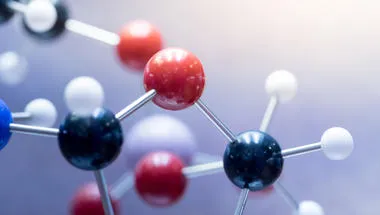
Dr Carla de Tomas
Senior Lecturer in Net Zero
Research interests
- Physics
Biography
Dr Carla de Tomas is a Senior Lecturer in Net Zero in the Department of Physics and a member of the Net Zero Centre, King’s College London.
Her research interests focus on disordered and porous carbon materials, with a particular emphasis on their sustainability and tunability for a wide range of technological applications. These include energy and gas storage, as well as air and water purification. She earned her PhD in Physics from the Autonomous University of Barcelona, where she developed a passion for computational research. She is dedicated to working closely with experimentalists to maximize the impact of her work, using high-throughput atomistic simulations and machine-learning-based tools to guide the rational design of active materials for target applications.
Before joining King’s College London, she held a Marie Sklodowska-Curie Individual Fellowship at Imperial College, where she worked on optimizing carbon electrodes for sodium-ion batteries—a more sustainable alternative to lithium-based chemistries.
Her academic trajectory is further enriched by one year of industrial experience in the battery sector. In 2020, she worked as a Senior Computational Materials Scientist at Happy Electron Ltd., an international battery start-up based in London. Prior to relocating to London, Dr de Tomas held positions at The University of Tokyo as a JSPS Postdoctoral Fellow, Curtin University (Australia) as a Research Associate in the Carbon Group, and The University of Western Australia as a Casual Lecturer in Physics.
Since 2020 she serves as Editorial Associate for Carbon (Elsevier), the leading journal in carbon science.
Dr de Tomas is an Affiliate Member of the Royal Society of Chemistry. She is also a member of the British Carbon Society, the American Carbon Society and the Australian Carbon Society, as well as a member of the Marie Curie and JSPS Alumni Associations.
Research Interests
- Carbon materials science
- Porous materials
- Advanced materials characterization
- Alkali-ion batteries and supercapacitors
- Gas storage and separation
- Heat transfer
- Data-driven materials discovery
- Large-scale atomistic simulation
More Information
Carla de Tomas - ORCID
Research

Theory & Simulation of Condensed Matter
Research is focused on the theory of condensed matter, and in particular the development and application of advanced theoretical and modelling techniques suitable for the study of complex materials and molecular systems and processes.
Events

Computational Modelling of Nature-Inspired Sustainable Materials
A seminar on using computational modelling and ML to engineer nature-inspired sustainable materials.
Please note: this event has passed.
Research

Theory & Simulation of Condensed Matter
Research is focused on the theory of condensed matter, and in particular the development and application of advanced theoretical and modelling techniques suitable for the study of complex materials and molecular systems and processes.
Events

Computational Modelling of Nature-Inspired Sustainable Materials
A seminar on using computational modelling and ML to engineer nature-inspired sustainable materials.
Please note: this event has passed.
